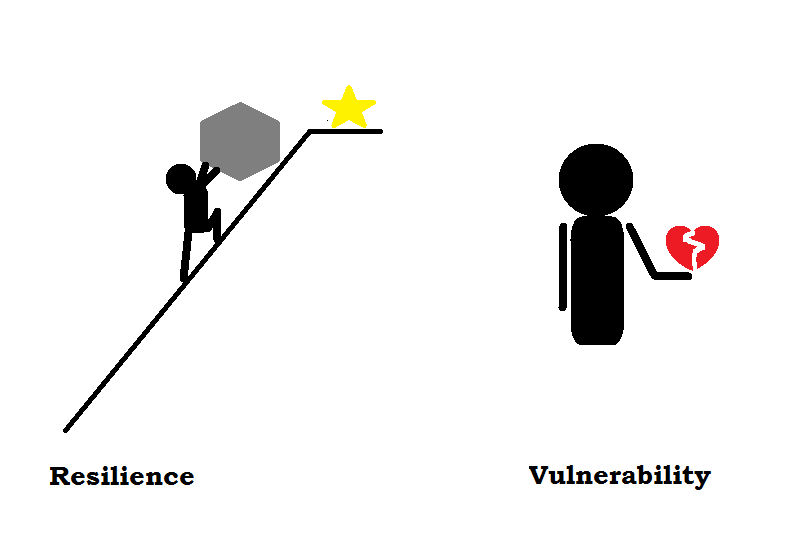In a courageous new world, should we be resilient or vulnerable?
If we consider the popularity of competitive shows – be it (country) has got talent, (country)’s Top Model/Designer/Mountain Climber – we like a tough journey, with highs and lows and where only the one’s who work hard and who have tenacity make it. In the real world, however, organisations deal with an ever-increasing demand for understanding and consideration of people’s needs. It is not easy for any person then, to navigate the balance between resilience and vulnerability for themselves. Plus it’s complicated: national cultural norms can impact how organisations are led and how individuals behave. For example, in an uncertain, unstable environment, individuals are more likely to cooperate and come up with ideas if the organisation provides guidance and clear rules that facilitate an environment of trust.
People like Brené Brown, Oprah Winfrey and Simon Sinek would encourage us to consider those who are vulnerable to be brave for speaking out when not feeling safe. Yet, there is a plethora of articles that discuss “the X things successful people do to be resilient”). Some of this may be linked to context – in certain organisations and also countries, it is more socially acceptable to be vulnerable (expressed explicitly or indirectly – i.e., valuing vulnerability doesn’t equate being emotional) or to be stoic, strong and/or resilient. The tricky thing is that the cultural context seems to foster one or the other – needing security as a value is theorised to be opposite self direction. We seem to be engaged in a ideological tug of war of what individuals, countries, the world need to prosper. For example, Michele Gelfand speaks of ‘tight’ versus ‘loose’ cultures in reflection of the popularity of “strong man culture” and you can even test your own looseness or tightness.

Albeit not quite on a spectrum (resilience is not the antonym of vulnerability), both do fall under the umbrella of ‘courage’. The opposite of vulnerability is defined as not being able to be harmed, which suggests the person borders on psychopathic. The antonym of resilience is weakness and that implies a lack of courage but not a lack of vulnerability. Truth be told, in this complex, globalised world we probably need both – societies and organisations benefit from people who are courageous enough to show a balance between sensitivity and strength. And that takes 50 minutes of reflection with a sense of humour as a first step.